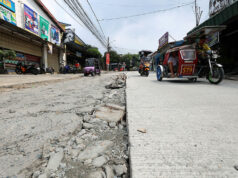Rediscount borrowings surge on funding needs
MORE BANKS turned to the central bank to avail of short-term loans in 2018, with the figure surging compared to a year ago due to higher funding needs for investments.
Peso rediscount loans reached P14.706 billion in December, a sharp rise from the P9.642 billion availed by lenders from the Bangko Sentral ng Pilipinas (BSP) the previous month. This also soared from the P447 million credit lines availed by banks in December 2017.
The BSP’s rediscount facility serves as an avenue for banks to get hold of more cash by posting their collectibles as collateral for short-term credit. The banks can then use the fresh money supply — either in peso, dollar or yen — to hand out more loans for corporate or retail clients and service unexpected withdrawals.
December’s availments brought the full-year tally to P71.524 billion, the central bank said in a statement yesterday. This jumped from a mere P1.591 billion worth of total borrowings in 2017.
This comes at a time when market players are seeing “tight” liquidity conditions after the central bank launched a series of rate hikes to temper inflation expectations. Higher benchmark yields made borrowing money more expensive.
The central bank said more than half of the rediscount credit were used for capital asset expenses, with these investments accounting for 53.62% of the total. This was followed by commercial credits (25.08%) and lending for other services (14.51%), while the rest went into permanent working capital, production and housing.
On the other hand, the dollar and yen rediscount windows for exporters remained untouched the whole year, sustaining a trend seen previously.
For January, rates for rediscount loans remain steady after policy makers voted to keep benchmark yields unchanged during their Dec. 13 meeting.
Rediscount rates for peso loans stand at 5.3125% for loans maturing in 90 days or shorter, while those with a 91 to 180-day term are priced at 5.375%.
Meanwhile, yields for foreign currency credit went up to mirror a movements in global interest rates.
Dollar borrowings will be slapped a higher rate of 4.80763% for one to 90-day loans; 4.87013% for 91- to 180-day loans; and 4.93263% for 181- to 360-day loans, the central bank said.
Rates for yen loans also inched higher to 1.92733% for one to 90-day loans, 1.98983% for 91- to 180-day loans, and 2.05233% for 181- to 360-day loans. — Melissa Luz T. Lopez



